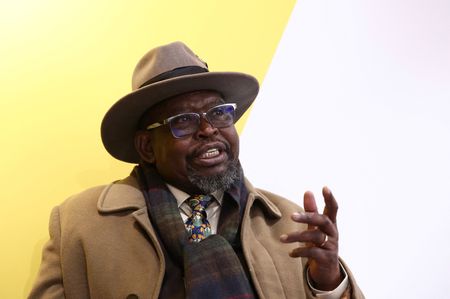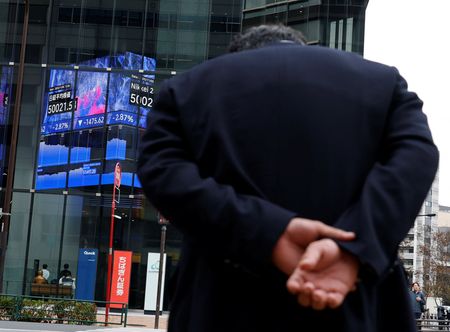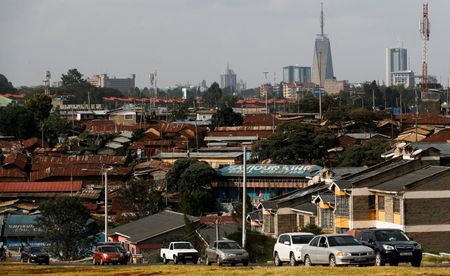By Brad Haynes
DAVOS, Switzerland (Reuters) -South Africa is focusing on implementing growth-enhancing reforms not regaining its investment-grade credit rating, which could take two years or more, its finance minister said on Monday.
The three big credit ratings agencies have South Africa in sub-investment grade, or “junk”, status.
S&P Global raised the outlook on the sovereign rating to “positive” in November, citing improved reform potential under the coalition government that was formed last year. That led to speculation that ratings upgrades could follow soon.
“Our focus is ‘how do we resolve our structural problems?’ involving massive structural reforms, whose effect would be to lay the foundation for growth,” Finance Minister Enoch Godongwana told Reuters in an interview at the World Economic Forum’s annual meeting in Davos, Switzerland.
Asked how long it could take for South Africa to regain its investment-grade rating, Godongwana said: “Give or take two years”.
Last year’s broad coalition between the long-ruling African National Congress, the market-friendly Democratic Alliance and a host of other smaller parties has sparked optimism that reform momentum could build in sectors like energy, freight rail and the visa system.
But that is yet to translate into faster growth, and the economy unexpectedly contracted in the third quarter of 2024.
Godongwana said he was confident that the government would meet a target laid out in October’s mid-year budget that public debt would stabilise in the 2025/26 fiscal year.
“How you manage to achieve that is by raising the primary balance. Is that on track? Yes, that’s on track,” he added, after South Africa achieved its first primary budget surplus – where revenue exceeded non-interest expenditure – in more than a decade last year.
On a debate around lowering the country’s inflation target, something he would need to sign off on and which central bank governor Lesetja Kganyago says is needed to make the economy more competitive, Godongwana said the current 3%-6% target range was working well.
His stance builds on comments to Reuters last year that he was not yet convinced a lower target was needed.
“Why should we be talking, making noise about changing the inflation target when we are already closer to the lower part of the band? In my view it’s working well,” said Godongwana.
Inflation was at 2.9% year-on-year in November. Analysts expect it to pick up in December and this year average around 4.5%, the midpoint of the target band.
(Reporting by Brad Haynes. Additional reporting by Kopano Gumbi and Tannur Anders in Johannesburg. Editing by Alexander Winning and Mark Potter)











